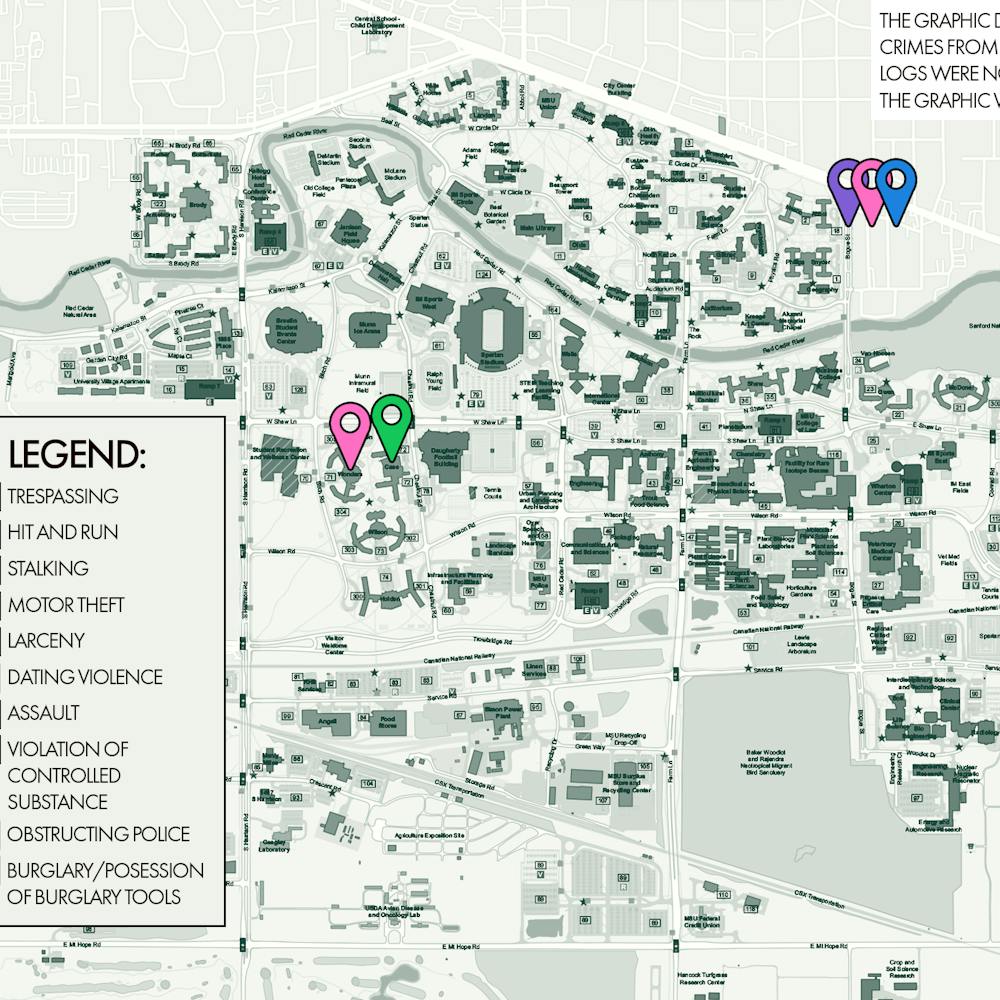Computer science sophomore Jeff Valentic and computer science freshman Jerod Depifanio spent their weekend creating a demo of a virtual reality game. The program allows up to 50 people to create their own map to play in.
The main goal of the game is to get an entire room of people to play together, as apposed to the standard three or four person limit, Depifanio said.
“I like to create things,” Valentic said. “When I get to code, I’m building something from the bottom up and I know what exactly it's going to do.”
They did it in 36 hours while at SpartaHack, a hackathon held at Wells Hall.
Upwards of 500 people used Wells Hall to do similar projects. The third annual student-run SpartaHack took place Jan. 20 to Jan. 22 and welcomed people of all hacking levels to use their technology to create a project of their choice.
The "36-hour programming marathon" encourages students of all coding levels to create something in a creative environment, according to its website.
Though the event is at MSU, it is open to the public, from high schoolers to recent college graduates. At 2016's event, 47 percent of participants were MSU students and 69.9 percent were first-time hackers.
According to the website, SpartaHack provided meals, snacks, rest areas and gifts for free so hackers could focus on their projects.
The thrill of making products yourself was a common theme at Spartahack. While much of the hacking took place individually on laptop computers, MSU graduate student Mengying Sun and doctoral student Deliang Yang worked as a pair to problem-solve their cat’s obesity.
“Sometimes it bothers us if we feed too much food to her,” Sun said. “We don’t want to have a cat with obesity.”
The product uses the Amazon device Alexa to automatically pour cat food into a dish. The pair coded the program that permits Alexa to understand that specific command. Although the actual device was constructed by hand with wood and a hot glue gun, Yang built the prototype in a 3-D computer program before the hackathon.
Executive co-director and MSU graduate student Lauren Bretz was eager for the third hackathon at MSU. She said the events became popular at other universities which led MSU to join the trend.
“Collegiate hackathons really blew up like five years ago,” Bretz said. “Big, prestigious schools started doing these huge, multi-hundred person hackathons, so other universities wanted to elevate the profile of their engineering programs."
SpartaHack also included workshops throughout the weekend. The biggest one came from Jay Freeman, the creator of the original jailbreak for iPhones.
"He comes every year and gives a five hour workshop to hackers from midnight to 5 a.m." Bretz said.
Besides learning to code, internships and networking are a large component of SpartaHack, Bretz said. Sponsors of the event include IBM, Google, Ford and Quicken Loans.
Learning a new skill, such as coding, is an incredibly useful skill to possess in a technology dependent world, Bretz said.
Support student media!
Please consider donating to The State News and help fund the future of journalism.
Discussion
Share and discuss “Third annual SpartaHack brings 500 students to code, build projects” on social media.






